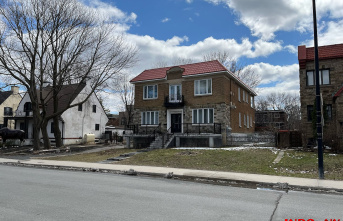A woman suspected by Canada's immigration service of having been a "sex spy" in the service of the KGB has had to struggle for years to obtain the right to live in the country with her Canadian husband.
The incredible story of Elena Crenna begins in 2013, when she applies for permanent residence in Canada to live with the man she married a year earlier.
The latter, David Crenna, is a former adviser to former Prime Minister Pierre Elliott Trudeau.
He also held important positions with Canada Mortgage and Housing Corporation in the 1980s and 1990s. He met his wife in 1994 as part of a Canadian-led construction project in Russia. She then serves as his interpreter.
MEETINGS WITH THE FSB
Quickly, the FSB (which succeeded the KGB, the Russian secret services) approaches the woman to obtain information on the project carried out by Mr. Crenna in Russia. The woman meets with an FSB agent five to seven times.
She warns David Crenna of these contacts and he tells her to collaborate to avoid harming the project.
The two finally fall in love a few months later, before parting ways in 1996.
In 2008, David Crenna reconnected with Elena who had since moved to the United States and obtained her citizenship there.
PROHIBITED BECAUSE OF A BOOK
He asks her about a book released in 2007 called Comrade J, about the secrets of the secret services after the cold war. The book was about a “sex spy” whose story was very similar to that of David and Elena Crenna. It is on this book that the immigration services are based in particular to prohibit access to Canadian territory to women.
The latter had however met with the Canadian Intelligence and Security Service (CSIS), which had no opposition to her request to live in the country.
It took until 2020 for a Federal Court judge to order that decision overturned and for her to apply for residency sponsored by her husband.
1












